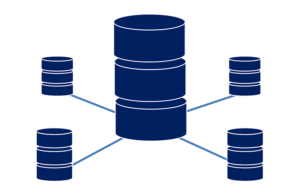Hello, today we will talk about what is Web hosting, what are the types of Web hosting, how does hosting work etc. let’s start
All Sub Topic
what is Web hosting
Hosting refers to the service of providing storage space and resources on a server to make a website or application accessible over the internet. The server is owned and maintained by a hosting provider and clients can rent the space and resources to host their websites and web-based applications. This allows the clients to make their websites available to users online without having to invest in and manage their own server.

what are the types of hosting | kind of web hosting
There are several types of web hosting, including:
- Shared Hosting: Where multiple websites are hosted on the same server and share resources like storage and bandwidth. It is the most economical option for individuals or small businesses with a low-traffic website.
- Virtual Private Server (VPS) Hosting: Where a virtual machine is created on a physical server, providing more resources and control compared to shared hosting. Suitable for websites with moderate to high traffic.
- Dedicated Hosting: Where an entire physical server is dedicated to hosting a single website, providing the highest level of resources and control. Suitable for websites with very high traffic or resource-intensive applications.
- Cloud Hosting: Where resources are provided over a network of servers in a cloud computing environment, providing scalability and flexibility. Suitable for websites with changing traffic patterns or large-scale enterprise applications.
- Managed Hosting: Where the hosting provider takes care of the technical aspects of running the server, freeing up the client to focus on their website or application. Suitable for businesses or individuals who do not want to deal with the technical side of hosting.
what is shared web hosting
Shared web hosting is a type of web hosting service where multiple websites share the same server and its resources, such as storage space, RAM, and CPU. The hosting provider manages the server and takes care of maintenance and security tasks.
Shared hosting is the most affordable and beginner-friendly type of hosting, making it a popular option for individuals or small businesses with low-traffic websites. It is also a good choice for new websites that are just starting out and don’t require a lot of resources.
In shared hosting, the hosting provider typically provides a control panel for the client to manage their website and associated resources. The client is responsible for maintaining their own website, including updating software, backups, and security.
Overall, shared hosting is a cost-effective solution for those who want a simple, low-maintenance way to get their website online without having to invest in expensive hardware and infrastructure.

what is vps hosting
VPS (Virtual Private Server) hosting is a type of web hosting service that provides more resources and control compared to shared hosting. In VPS hosting, a virtual machine is created on a physical server and the client rents that virtual machine, giving them dedicated resources and access to the server’s operating system.
With VPS hosting, each client has their own virtual environment and can install their own operating system, software, and applications. This provides greater flexibility and control compared to shared hosting, and allows the client to have root access to the server, meaning they can configure it as they see fit.
VPS hosting is suitable for websites with moderate to high traffic or resource-intensive applications, and offers a balance between cost and performance compared to dedicated hosting. It is also a good choice for those who want more control and flexibility over their hosting environment, but do not want to invest in a dedicated server.
In VPS hosting, the hosting provider is responsible for maintaining the physical server and network infrastructure, while the client is responsible for managing their virtual environment and website. This provides a good balance between cost-effectiveness and control, making VPS hosting a popular choice for growing businesses and websites.
what is dedicated web hosting
Dedicated web hosting is a type of web hosting service where an entire physical server is dedicated to hosting a single website. This provides the client with the highest level of resources and control, making it a suitable option for websites with very high traffic or resource-intensive applications.
In dedicated hosting, the client has exclusive use of the server’s resources, including storage space, RAM, CPU, and bandwidth. They also have complete control over the server, including the ability to install custom software, configure the server, and manage security and backups.
Dedicated hosting is a more expensive option compared to shared or VPS hosting, as the client is responsible for the entire cost of the server and its maintenance. However, it offers the highest level of performance and reliability, making it a good choice for large businesses, e-commerce sites, and websites with very high traffic.
In dedicated hosting, the client is responsible for managing their server and website, but the hosting provider is typically available to provide support and assistance as needed. This allows the client to have complete control over their hosting environment, but with the peace of mind that support is available if needed.

what is wordpress hosting
WordPress hosting refers to hosting specifically optimized for the WordPress content management system (CMS). WordPress is a popular open-source platform used to build and manage websites, and WordPress hosting is designed to provide a fast, secure, and reliable hosting environment for WordPress websites.
WordPress hosting can be either shared, VPS, or dedicated hosting, but the main difference is that the hosting provider has optimized their infrastructure and server settings for WordPress. This can include things like server configurations optimized for WordPress, pre-installed WordPress software, and specialized security measures to protect WordPress websites from hacking and other security threats.
WordPress hosting also often includes easy-to-use tools for managing WordPress websites, such as automatic updates, backups, and an easy-to-use control panel. This makes it a convenient option for individuals and businesses who want to build and manage a WordPress website without having to deal with the technical side of hosting.
Overall, WordPress hosting is a good choice for those who want a fast, secure, and easy-to-use hosting environment specifically optimized for WordPress websites.
how to buy web hosting
Buying web hosting involves the following steps:
- Determine your hosting needs: Before you buy web hosting, it’s important to determine your specific needs, such as the type of website you want to build, the amount of traffic you expect, and the resources you will require (e.g. storage space, RAM, CPU, etc.). This will help you determine which type of hosting (e.g. shared, VPS, or dedicated) and which hosting provider is best for you.
- Choose a hosting provider: Research and compare different hosting providers to find one that offers the type of hosting you need, at a price that fits your budget. Look for reviews and ratings from other customers to get an idea of the provider’s reliability and support.
- Select a hosting plan: Once you have chosen a hosting provider, select the hosting plan that best meets your needs. Most hosting providers offer different plans with varying levels of resources, so make sure you choose a plan that provides the resources you need.
- Register a domain name: If you don’t already have a domain name, you will need to register one. This is the web address that people will use to access your website. Many hosting providers offer domain name registration as an optional add-on service.
- Purchase the hosting: Once you have selected your hosting plan, domain name (if necessary), and any additional services, you can proceed to purchase your hosting. Hosting providers typically offer various payment options, such as credit card or PayPal.
- Set up your website: After purchasing your hosting, the hosting provider will typically provide you with access to a control panel, where you can set up your website, install WordPress or any other content management system (CMS), and manage your hosting account.
By following these steps, you can buy web hosting and set up your website quickly and easily.
how to works web hosting
Web hosting works by storing the files and data for a website on a physical server, which is connected to the Internet. When someone accesses the website, their browser sends a request to the server, which then sends back the files and data needed to display the website.
Here’s a basic overview of how web hosting works:
- A server is rented from a hosting provider: The hosting provider has one or more servers located in a data center, which are used to store the files and data for websites.
- Website files are uploaded to the server: The website owner or developer uploads the files and data for the website to the server, either through FTP (File Transfer Protocol) or through a web-based control panel provided by the hosting provider.
- Domain name is pointed to the server: The website owner or developer sets up a domain name for the website, and points it to the IP address of the server. This allows people to access the website using the domain name instead of the IP address.
- Visitors access the website: When a visitor accesses the website, their browser sends a request to the server. The server then sends back the files and data needed to display the website, and the visitor’s browser renders the website for the visitor to see.
- Hosting provider manages the server: The hosting provider is responsible for maintaining the physical server, ensuring that it is always connected to the Internet, and providing technical support if needed.
In summary, web hosting works by storing the files and data for a website on a physical server, and allowing visitors to access the website by sending requests to the server and receiving the files and data needed to display the website.
good bye.






